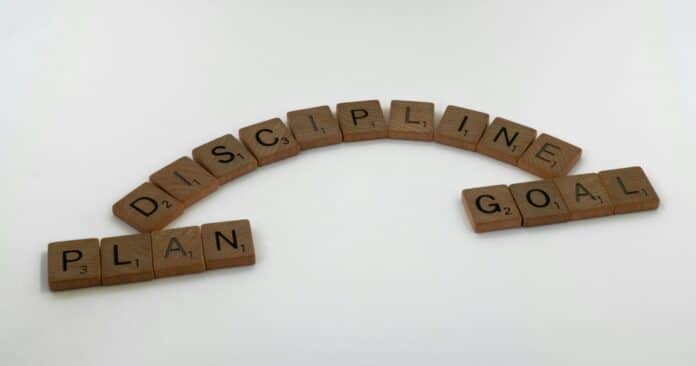Parents often talk about discipline or the lack of it, especially in others’ children. The foreman on a job wants to instill discipline in the workers for the best productivity. The CEO in charge of his staff wants them to start work at a specific time and work diligently until the end of their workday.
If the employee does not follow the employer or the self-employed does not follow his own discipline rules, this will hinder his own production and may lead to losing the business to a more disciplined person. The same results happen with parents who are sincere in their commitment to raising a child with a strong conscience but do not insist on the child following their rules. Almost every parent believes their child is faithfully following their teachings even when they are not present.
On the news daily we see youths roaming the streets committing senseless crimes. Obviously, these adolescents are lacking a conscience, or they would not behave like this. What was needed was strong punishment that caused sufficient pain when they were young to be remembered and to lead to self-imposed correction of behavior.
Often parents tell their child there will be a negative consequence if they do not behave properly or a positive one, if they do well. Some parents say they will take something away such as using a computer, tv, or other electronic device but never follow through on. This means the child learns to disregard the words of the parents which does nothing to motivate the child to develop a conscience. Instead, it destroys the integrity of the parents and their word.
There are some parents that keep their word to show the child it is better to do it right the first time instead of playing games. Discipline becomes a habit in their child’s life which helps them to keep their word and actions on the same page. Self-disciplined children mean they are becoming mature and self-correct before they make any decisions that would be harmful.
Well-thought out and executed discipline serves the person well and poor discipline serves the person badly for the rest of their life. A mature person carefully weighs the pros and cons before making a decision. At the beginning their parent’s gave examples and explained why a particular behavior was wrong. Besides telling why a behavior would hurt the child, they are given a corrective punishment to reinforce that their choice was wrong and would be remembered. Besides choosing an appropriate consequence, the parent shows the child how this could become a habit they would be stuck with throughout their life.
As the child learns to think about the long-term consequences of their behavior, their decision making improves. They mature into well behaved adolescents and eventually into reasonable adults.
Children become productive adults with the assistance of an adult who holds them to high decision-making standards at an early stage in their life. Developing a conscience in a child is the most important responsibility of a parent. By the person pointing out the negativity of certain behaviors and the importance of doing the right thing this conscience development keeps the person on a healthy path.
Domenick Maglio, PhD. is a columnist carried by various newspapers and blogs, an author of several books and owner/director of Wider Horizons School, a college prep program. Dr. Maglio is an author of weekly newspaper articles, INVASION WITHIN and the latest book entitled, IN CHARGE PARENTING In a PC World. You can see many of Dr. Maglio’s articles at www.drmaglioblogspot.com.

